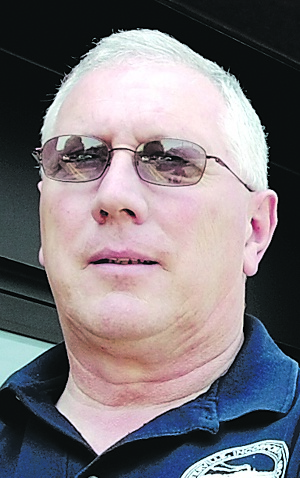WATERVILLE — The Waterville Police Department is looking for older adults and others who may be homebound because of physical or medical issues to become part of a program that checks on them daily by phone.
The “Are You OK?” program uses an automated phone system to call people in their homes as many times a day as they wish, at the times they prefer, and all they need to do is pick up the phone when it rings and hang it up, which lets police know they are OK.
If they do not respond to the automated calls, police go to their home to check on them.
There is no cost to Waterville, Winslow and Oakland residents to take part in the program.
The police department launched the program 15 years ago and initially it had a lot of participants, but over time the numbers dwindled because people died and others may have signed on to other programs, said police Chief Joseph Massey.
“I think it’s just a great opportunity,” Massey said. “It gives some of those folks that independence to stay in their homes, which they might otherwise not be able to do.”
John Morris, commissioner of the state Department of Public Safety, started the “Are You OK?” program in 2000 when he was Waterville police chief.
Morris recalled a specific instance of how the program saved a person’s life.
An elderly woman who had fallen in her home shortly after she had received the automated message and confirmed that she was all right. After falling, she lay on the floor for many hours, he said.
“When she didn’t answer the phone (after the next call), we responded to find her — and truly, we did save that woman’s life,” Morris said.
Morris said such programs cost very little and are very important for people who are home-bound and do not have a support system, including those who may have just had surgery. And people may sign up and sign off from the program as often as they wish, he said.
“It was a program that absolutely worked,” he said. “I do know how important it was when I was there in town and I commend Joe (Massey) for trying to re-establish a consumer base.”
Bill Johnson, executive director of the National Association of Police Organizations, based in Washington, D.C., said Friday that such programs are becoming more common as law enforcement agencies reach out to the public to develop relationships, not only with elderly people and those who may have medical issues, but also to build trust with people in communities in general.
Deepening the bond of trust between police officers and citizens can help both sides of the relationship, Johnson said, because when people see officers as human beings, they are more willing to turn to them when they have difficulties related to domestic violence, depression and other issues. Police are there to protect and serve and not just to make arrests and deal with violent situations, Johnson noted.
He said programs that check on people in their homes are important.
“I think it’s a great idea and I think it helps to build and solidify ties and bridges with the community and police also,” he said.
The National Police Association has about 1,000 members, including police departments, sheriff’s offices, state police and other law enforcement organizations, representing about 241,000 officers altogether.
Anyone wanting to be part of the “Are You OK?” program may call Massey’s executive assistant, Kathleen Kenney-Haley, at 680-4704 and she will send out a form to be completed with a few simple questions, or she can take a person’s information over the phone.
Kenney-Haley will then inform participants about when the program will start.
If someone is not going to be home for a period of time, he or she may call the police department at 680-4700 to let a dispatcher know. If a person starts the program and decides not to continue, he may call and the service will be discontinued.
Massey said police encourage people to join the program, which can offer participants a sense of security in their homes.
“It’s not a bother whatsoever,” he said. “It’s really a nice program that we are offering and it’s all automated, so it’s not a lot of work for us. That’s what we’re here for and we’re delighted that we can offer this service free of charge and it’s nice to know it may extend somebody’s ability to stay in the home as long as possible and get them the emergency medical help they may need.”
Amy Calder — 861-9247
Twitter: @AmyCalder17
Copy the Story LinkSend questions/comments to the editors.




Success. Please wait for the page to reload. If the page does not reload within 5 seconds, please refresh the page.
Enter your email and password to access comments.
Hi, to comment on stories you must . This profile is in addition to your subscription and website login.
Already have a commenting profile? .
Invalid username/password.
Please check your email to confirm and complete your registration.
Only subscribers are eligible to post comments. Please subscribe or login first for digital access. Here’s why.
Use the form below to reset your password. When you've submitted your account email, we will send an email with a reset code.